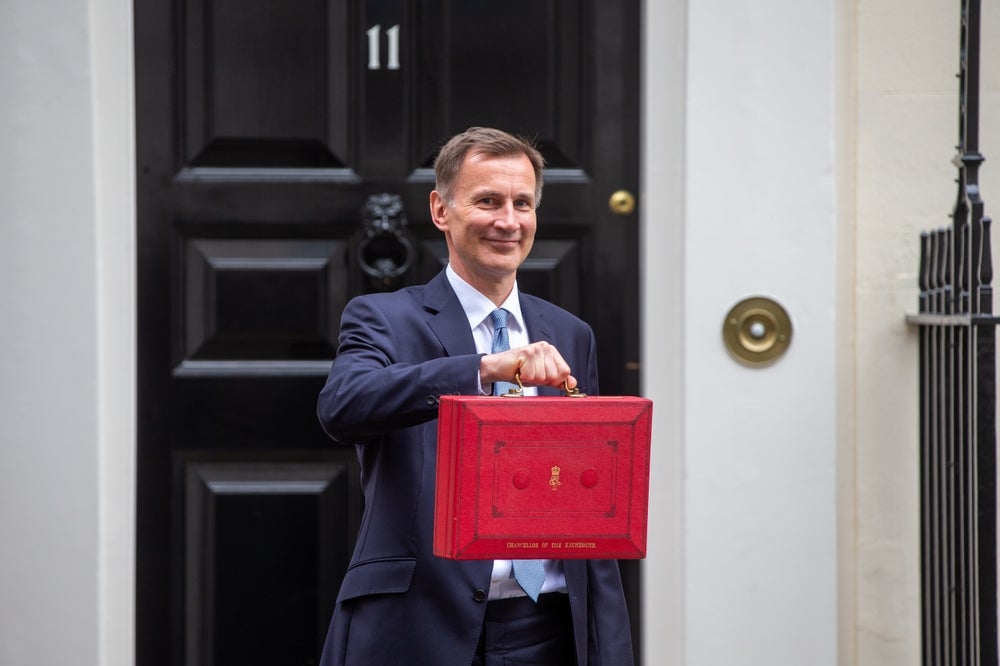
As the chancellor has already indicated that tax cuts are ‘virtually impossible’ until the economy recovers, it’s likely he will turn to some tried and tested areas in the Autumn Statement (22 November) to demonstrate that the government is taking action to boost growth. BDO comments on what the chancellor may come to announce.
This will include providing updates on planned reforms, cutting red tape to help businesses, tackling anti-avoidance and seeking to boost UK investment without spending too much Government money.
Updates on planned reforms
There are a number of reform projects already underway where progress updates and final decisions can be expected.
R&D tax relief – Last year the Government announced that it planned to merge the UK’s two R&D tax relief schemes (SME and RDEC) into a single scheme to simplify the rules and cut down on the cost of the SME scheme from April 2024.
Draft legislation was published in July but HMRC and the Treasury have been consulting on changes to the proposals to simplify them for companies at both ends of the spectrum and to make the UK regime more competitive internationally.
How well do you really know your competitors?
Access the most comprehensive Company Profiles on the market, powered by GlobalData. Save hours of research. Gain competitive edge.

Thank you!
Your download email will arrive shortly
Not ready to buy yet? Download a free sample
We are confident about the unique quality of our Company Profiles. However, we want you to make the most beneficial decision for your business, so we offer a free sample that you can download by submitting the below form
By GlobalDataGiven the recent changes we have seen to the R&D regime, BDO expects to see a delay in the implementation of the new scheme to give businesses time to make the transition without too much disruption.
Pillar Two rules – The UK is also implementing the global Pillar Two rules for international companies (with worldwide revenues of over €750m) starting from 1 January 2024. As this change will raise revenue for the UK, it is likely to feature in Government’s projections. It is also hoped that there will be more clarification on both UK reporting requirements and HMRC’s stance on administering these complex rules.
Simplifying corporation tax reporting – On 19 June, the Government launched a consultation on bringing various elements of the UK’s international tax regime into line with OECD norms. This includes Transfer Pricing and corporate permanent establishments, as well as bringing the Diverted Profits Tax into line with mainstream corporation tax rules. Some of the proposals will help to simplify reporting for UK groups but there are a number of technical issues on which further decisions and clarification are required.
Carbon border tax – The EU Carbon Border Adjustment Mechanism (CBAM) took effect from 1 October 2023 and will affect some UK exporters going forward. The UK has consulted on creating its own carbon leakage tax and although we can expect feedback on the proposals, it may yet be some time before it imposes new reporting burdens and taxes on importing companies.
Inheritance Tax – There has been much press speculation and many calls for the reform or removal of inheritance tax. While removing it would be a tax cut that cannot be funded right now, it is just possible that the chancellor may open a consultation on reform, to lay the ground for a future announcement at the Spring Budget or as a General Election manifesto pledge.
Cutting red tape
Simplifying and modernising the UK’s tax system is a perennial project and always guarantees a favourable response from businesses.
The UK Construction industry scheme (CIS) – Back in April the Government launched a consultation on reform to remove a number of longstanding bugbears for those companies who have to make CIS returns – progress on removing these would be most welcome.
Employment taxes – In the current ‘cost of living crisis’, many more businesses are having to give staff pay advances during a month, but the current legislation requires them to send a payroll Real Time Information (RTI) report ‘on or before’ payments are made. A consultation on relaxing these rules so that monthly RTI reports can still be made in such circumstances has been described as “most welcome”, and BDO expects reforms can be made in this area quickly.
The Government’s project to remove retained EU law from the UK state book should enable it to reform the way that holiday pay for part time and temporary workers is calculated by employers. BDO has said that it hopes that this reform can be advanced to give employers more flexibility to roll up holiday pay.
Customs – There may be some more news on Customs Duty procedures as the UK develops its processes and systems following Brexit. This has been a rather iterative process to date with many deferrals and delays. Progress on its ‘Future of Customs Declarations’ consultation towards delivering better IT systems and more moves to streamline the current processes (like the red and green channel approach for Northern Ireland) would be welcome. Extending the exemption from 10% import duty for electric car batteries (currently due to expire on 31 December 2023) may also be on the agenda if the government has not completely given up on its plans to reach Net Zero. It would also remove a potentially inflationary measure.
Plastic Packaging Tax – Thousands of businesses now pay the Plastic Packaging Tax because they create and use plastics that do not have a 30% recycled plastic content. However, it is difficult for companies to assess what is and is not recycled plastic in many circumstances. The Government is consulting on adopting a ‘mass balance’ approach to ensure that chemically recycled plastic can be counted towards to 30% target. Reforming the rules in this area will make monitoring and compliance easier for many businesses.
Data projects – Under HMRC’s ongoing Tax Administration Framework Review it has been consulting on using third party data to pre-populate tax returns. While this is intended to simplify tax obligations for taxpayers, it will inevitably raise concerns about the legal framework for using such data. The public may hear more in the Autumn Statement about this and other data projects.
Anti-avoidance – Continually clamping down on tax avoidance is one reason why the UK tax take continues to increase year on year but there is always more to do and more underpaid tax to be collected.
Umbrella companies – Over the last 10 years, governments have kept ratcheting up anti-avoidance legislation in the supply chain for contract workers. The current Government is still concerned that ‘umbrella companies’ supplying workers through third party agencies are still promoting/engaging in tax avoidance. BDO expects further news on a recent consultation on clamping down still further in this area.
Tax compliance for charities – The Government is concerned over tax compliance in the charity sector and in April published a consultation on ways to improve it and “protect the integrity of the charity sector”. BDO expects an update on the proposed reforms.
Employee Ownership Trusts – Perhaps because the use of employee ownership trusts to own companies for the benefit of their employees has increased, the Government is now concerned about potential abuse of the rules and is consulting on reforms.
Boosting investment
Maintaining high levels of business investment is central to boosting growth.
Capital allowances full expensing – If the economic figures are sufficiently favourable, the chancellor will want to be able to confirm that he can make the capital allowances full expensing regime (100% first year deduction) permanent.
At the Spring Budget, he was not able to do this because it would have breached his self-imposed fiscal rules (ie to get debt falling within the medium term). However, a recent report from the IFS has cast doubt on the OBR’s cost estimates for this measure; they assess the cost at no more than £3bn a year rather than the £10bn OBR estimate. If the OBR revisits its figures, there may well be headroom for the chancellor to take the “long term decision” to make full expensing permanent.
Help to Save – It is rumoured that the chancellor wants to use taxpayer’s savings to boost investment in UK companies. Following Brexit, reforms to the ISA rules that favour investment exclusively in UK listed companies are now possible, although achieving this without increasing the complexity of the widely understood ISA rules may be challenging. BDO has stated that it would expect the Government to consult on reform proposals and announce its response to the ongoing consultation on reforms to the ‘Help to Save’ rules.
Housing market – Boosting the housing market is a well-established tactic for getting the economy moving so the chancellor may just use any spare funding he can find to cut SDLT rates for first time buyers – it would be a popular move but cost relatively little in revenue terms.
Pension fund investment – Similarly, BDO has noted that it would expect a progress update on the Government’s proposals to liberalise pension fund investment. It is expected that the chancellor will announce that a new fund will be launched by the British Business Bank to allow pension funds to invest securely in smaller high-growth businesses.
Enterprise Investment Scheme – As the UK is no longer subject to EU restrictions on state aid, it would be possible for the Government to remove some of the current restrictions on the Enterprise Investment Scheme. For example, removing the requirement for companies to be less than seven years old to qualify and removing the capital limits. A consultation on such changes may be announced.
Boosting employee participation – An ongoing review of tax-advantaged share schemes resulted in a consultation on reform of the Save As You Earn (SAYE) and Share Incentive Plan (SIP) schemes to help boost employee participation. Announcing reforms to make them more attractive could be portrayed as helping employers (at a relatively low cost to the Treasury).
Occupational health – Similarly, the Government has been consulting on incentives for occupational health provision by employers with the aim of creating more preventative health benefits for employees to help increase productivity and cut NHS costs. Announcements that it is facilitating this sort of long-term investment could sit well with the Government’s current agenda.
Commenting on this, BDO tax partner, Jonathan Hickman, said: “We recognise the bind that the chancellor is in. While taxes are at historically high levels, the state of the public finances gives him very little room for manoeuvre. However, there are improvements that he could make to the tax system now which do not cost huge sums and that would make life much easier, particularly for the entrepreneurial, mid-market businesses that play such an important role in powering the UK economy.
“Our mid-market clients, many of whom have quite complex tax affairs, have clearly expressed their frustrations with HMRC’s current service levels. They would benefit from having a dedicated single point of contact at HMRC who could help them get things right first time. This would only require a relatively modest investment but it would have a huge beneficial impact on levels of compliance and would free up time and resources which are currently wasted in long, drawn-out disputes.”






